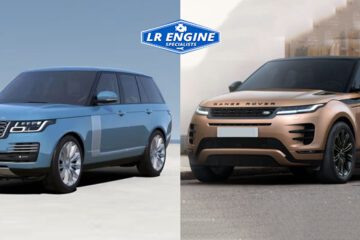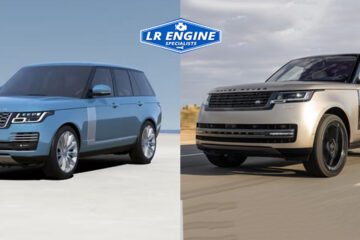Introduction:
The Range Rover V8 Engine is a prime example of the latest automotive innovation, blending raw power with unmatched reliability and sophistication. Since its debut in the 1960s, this engine has been meticulously refined through decades of development, boosting the Range Rover to an apex of luxury and performance. Today, the Range Rover V8 Engine continues to define excellence on and off the road, epitomizing a legacy of engineering skills that promises both thrilling drives and enduring dependability.
The Genesis of Power: The Evolution of the Range Rover V8 Engine
The Range Rover V8 Engine has its roots in Buick design, which was later meticulously re-designed by Rover’s expert engineers in the UK. Distinguished by its all-aluminum construction, this engine was impressively lighter than the traditional cast-iron engines of its era, directly improving the Range Rover’s commendable handling and nimbleness. Initially, it had a displacement of 3.5 liters, and the original Range Rover V8 Engine generated 135 horsepower—an extraordinary achievement for its time. Throughout the decades, this engine experienced continuous enlargement and refinement, leading to substantial advancements in performance and solidifying its legacy in automotive history.
Evolution of the Range Rover V8 Engine:
The Range Rover V8 Engine has remarkably advanced side-by-side automotive technology. The main development was the transition from carburetors to fuel injection, which greatly improved engine efficiency by boosting power output while reducing fuel consumption. Later versions of the Rover V8 Engine expanded to displacements of up to 5.0 liters, producing up to 510 horsepower in select models. This vigorous power enabled the Range Rover to accelerate from 0 to 60 mph in a swift 5.1 seconds, establishing it as one of the fastest luxury SUVs available.
Engine Specifications:
The Range Rover V8 Engine is the powerhouse at the heart of the vehicle. Its latest version has a potent 5.0-liter displacement. It comes equipped with a supercharger, churning out a commendable 510 horsepower between 6,000 and 6,500 rpm, and a formidable 461 lb-ft of torque from 2,500 to 5,500 rpm. The engine’s all-aluminum construction minimizes weight and improves the Range Rover’s overall balance and agility. Also, its double overhead camshaft (DOHC) design with 32 valves guarantees meticulous control over the air-fuel mixture and exhaust gases, resulting in effortless power delivery and boosted fuel efficiency. This excellent performance is a prime example of the excellent engineering behind the Range Rover V8 Engine.
A Versatile Powerhouse:
The Range Rover V8 Engines offers more than just amazing power; it epitomizes versatility. The Range Rover guarantees a smooth, reliable drive even if you’re gliding along the highway or conquering rough off-road paths. Its torque curve is expertly designed to deliver peak power at lower revs, the main feature for off-roading. This means the Range Rover smoothly tackles steep ascents and rough terrain. Paired with its advanced four-wheel-drive system, the Range Rover V8 Engines ensures extraordinary traction and stability in any condition, solidifying its reputation as a genuine all-terrain vehicle.
Technological Advancements:
Modern versions of the Range Rover V8 Engines have included various technological advancements aimed at improving performance and efficiency. One such feature is variable valve timing (VVT), which modifies the timing of the intake and exhaust valves to boost engine performance at different speeds. This not only enhances fuel efficiency but also makes sure that the engine delivers maximum power when needed. One more innovation is the use of direct fuel injection, which allows for more accurate fuel delivery, resulting in better combustion and lower emissions. These advancements have made the Range Rover V8 Engines not only powerful but also environmentally friendly.
The Future of the Range Rover V8 Engine:
As the automotive world shifts towards electrification, the future of the Rover V8 Engines is uncertain. But, the legacy of this iconic engine is undeniable. Its effect on the Range Rover’s performance has been exceptional, blending its status as one of the most admired luxury SUVs globally. Even as future models may shift to hybrid or fully electric powertrains, the soul of the Range Rover V8 Engines will continue to shape the design and performance of Range Rovers for years to come.
Conclusion:
The Range Rover V8 Engines has been the main element in the brand’s outstanding success, delivering the power, dependability, and experience that have defined the Range Rover experience. From its beginnings as a lightweight aluminum wonder to its present status as a high-performance dynamo, the Rover V8 Engine has remarkably shaped the Range Rover’s identity. Looking ahead, the legacy of the Range Rover V8 Engines will keep sparking innovation and inspiring the future of luxury SUVs.
FAQs:
What is the displacement of the latest Range Rover V8 Engines?
The latest Range Rover V8 Engines has a displacement of 5.0 liters.
How much horsepower does the 5.0-liter Range Rover V8 Engines generate?
It generates 510 horsepower.
What is the torque output of the latest Range Rover V8 Engines?
The engine produces 461 lb-ft of torque.
What notable feature boosts fuel efficiency in modern Range Rover V8 Engines?
Variable valve timing (VVT) boosts fuel efficiency.
Has the Range Rover V8 Engines evolved in terms of fuel delivery technology?
Yes, it now uses direct fuel injection for better combustion and lower emissions


